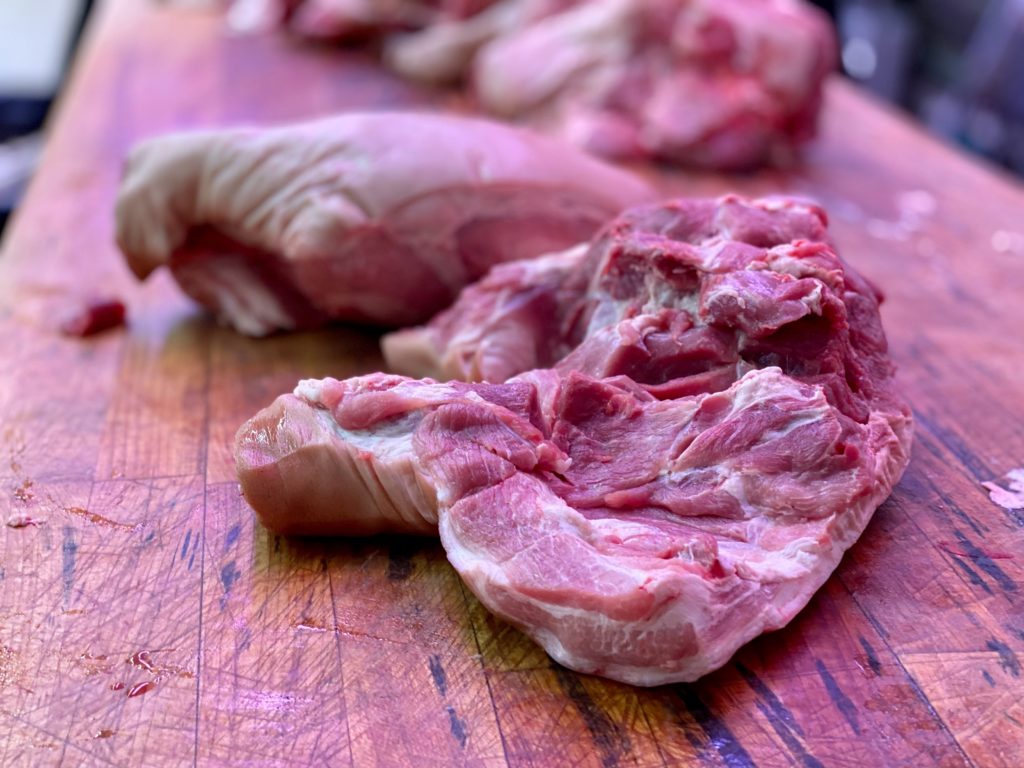4 Mins Read
The recently updated EU food promotion policy has linked red meat consumption to increased cancer risk. The Farm to Fork strategy includes beef, goat, lamb, and pig in the red meat category. In conjunction with Europe’s ‘Beat Cancer’ initiative, the EU Commission recommends a move towards more plant-based nutrition. Agri-food produced in the EU is being promoted as a solution both within and outside of the union.
The EU Commission has budgeted €170 million to promote a greener food system. The general consensus is that to prevent cancer rates from increasing, red and processed meats need to be reduced or eliminated from daily diets. In their place, sustainable plant-based foods should be consumed freely. The report and policy updates are an attempt to slow the impact of existing food systems on climate change. This is not the first research-based link to be drawn between red meat and cancer likelihood.

Driving the message home
The new EU report has allowed for policy updates. A thorough review of existing agri-food promotions highlighted an opportunity for a stronger push towards sustainable consumption. “Our aim is to increase awareness of organic farming and more sustainable agricultural practices, coupled with the promotion of fresh fruits and vegetables, essential for healthy eating and balanced diets,” Janusz Wojciechowski, EU agriculture commissioner, said in a statement.
To gain access to the €170 million promotional budget, campaigns need to meet strict criteria. They must align with the European Green Deal objectives, support the Common Agricultural Policy and commit to the Farm to Fork strategy. They must also work alongside Europe’s Beating Cancer plan. As a result, fresh plant-based producer suppliers are being shown preferential treatment.
The EU Commission has identified a number of non-EU markets to target with agri-food promotions. Canada, Mexico, South Korea, and Japan have all been named as “high-growth potential” regions. A generous proportion of the promotional budget will be focussed on encouraging systemic food system change in these areas. Southeast Asia as a whole has been earmarked for strong promotion of dietary change. This could prove critical, given that Hong Kong alone enjoys enormous meat consumption.
Promoting sustainable plant-based diet transitions aside, the updated policy has connected mandates. Tackling biodiversity loss, mitigating climate change, guaranteeing food security and maintaining affordability of food are top priorities.
“Food systems remain one of the key drivers of climate change and environmental degradation,” the EU policy writes. “There is an urgent need to reduce dependency on pesticides and antimicrobials, minimise fertilisation and water pollution, reduce greenhouse gas emissions and/or enhance carbon removals, enhance organic farming and other sustainable practices.”
The policy concludes with a list of solutions that include precision farming, improved animal welfare and a shift to healthy diets with less red meat contained therein.

Farmers fight back
The Irish Cattle and Sheep farmers’ Association (ICSA) has launched a scathing attack on the EU Commission. The ICSA has called the food promotion policy’s unveiling of a link between red meat consumption and cancer risk a “wilful misrepresentation of the actual research”.
“The EU seems to be blaming red meat consumption for increased cancer risk whereas the International Agency for Research on Cancer (IARC) report on behalf of the World Health Organisation (WHO) only found a marginal increased risk in the case of processed meats,” Dermot Kelleher, ICSA President said in a statement. “It could not find sound evidence regarding unprocessed red meats.”
The association went on to question other variables when identifying cancer risk. Smoking and obesity were two factors named. Feeling that the EU has taken an “ideological position” on red meat, the ICSA noted that an overall balanced diet with a focus on unprocessed foods must surely be preferable. This diet would naturally include red meat. “It is worrisome that the EU appears to be supporting highly processed plant burgers over real meat,” Kelleher said. “Apart from the fact that it is not based on robust evidence, it is distorting fair competition and actually undermining highly nutritious food produced by EU livestock farmers.”
While the ICSA fights back, elsewhere in the world, farmers are taking a different tack. Identifying that consumer trends are shifting towards plant-based living, dairy farmers, in particular, are adapting. In the U.S., they are being helped by programs such as Miyoko’s Creamery’s DFT initiative. Through funding and educational support, dairy farms are being converted to plant-based crop developers with guaranteed supply chains.
The Biden administration announced it will be supporting the U.S. meat industry. $1 billion in federal support has been pledged to expand the capacity of domestic meat production. Funding will come from the American Rescue Plan that was signed into law in March 2021. The administration has previously announced ambitious greenhouse gas emission reduction targets for 2020. Livestock farming has been cited as being responsible for the majority of all agricultural emissions. COP26 critics highlighted that little was initiated to tackle them. The Biden administration’s latest announcement confirms that the U.S. has chosen to ignore recommendations of reduced meat consumption and production for personal and planetary health.
All images courtesy of Unsplash.





